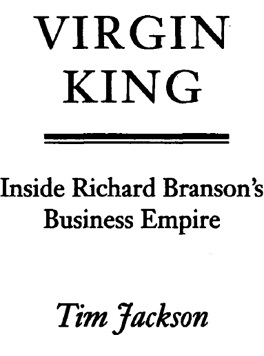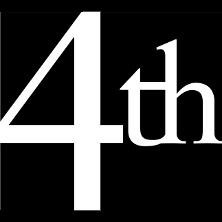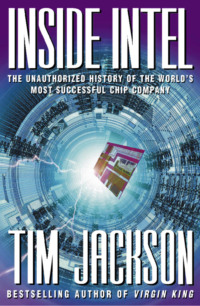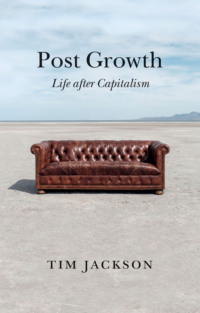
Полная версия
Virgin King (Text Only)




COPYRIGHT
Fourth Estate
An imprint of HarperCollinsPublishers Ltd.
1 London Bridge Street
London SE1 9GF
www.harpercollins.co.uk
First published in Great Britain by HarperCollinsPublishers 1994
Copyright © Tim Jackson 1994, 1995
Tim Jackson asserts the moral right to be identified as the author of this work
All rights reserved under International and Pan-American Copyright Conventions. By payment of the required fees, you have been granted the nonexclusive, nontransferable right to access and read the text of this ebook on-screen. No part of this text may be reproduced, transmitted, downloaded, decompiled, reverse-engineered, or stored in or introduced into any information storage and retrieval system, in any form or by any means, whether electronic or mechanical, now known or hereafter invented, without the express written permission of HarperCollins ebooks
HarperCollinsPublishers has made every reasonable effort to ensure that any picture content and written content in this ebook has been included or removed in accordance with the contractual and technological constraints in operation at the time of publication
Source ISBN: 9780006382676
Ebook Edition © DECEMBER 2016 ISBN: 9780008240646
Version: 2017-01-05
DEDICATION
For Emily Marbach
CONTENTS
COVER
TITLE PAGE
COPYRIGHT
DEDICATION
PROLOGUE: Concealing the Art
1 1969: Easy Work, Good Money
2 One Per Cent of Tubular Bells
3 Broken Bottles
4 Media Mogul
5 Do You Really Want to Hurt Me?
6 Dear Randolph
7 To Market, To Market
8 ‘Too Liberal a Use of the Lawyers’
9 The Little Boys and Their Boats
10 Hales and the Lionheart
11 Enlightened Capitalism
12 ‘I’ve Got to Believe You’re Serious about It’
13 Hot Air
14 Flying Across Two Oceans
15 Recovery in Woodstock Street
16 A Man of Property
17 Branson Succumbs to Takeover Fever
18 Loos, Booze and Upper Class
19 The Price of Privacy
20 Playing at Retailing
21 How John Thornton Earned His $3m
22 The BA Bonus
23 Heathrow Airport and the Slot Machine
24 A Matter of Timing
25 The £40m Wager
EPILOGUE
KEEP READING
CHRONOLOGY
INDEX
ACKNOWLEDGEMENTS
ABOUT THE AUTHOR
OTHER BOOKS BY
ABOUT THE PUBLISHER
PROLOGUE: CONCEALING THE ART
RICHARD BRANSON is Britain’s best-known entrepreneur, but it is not for his business activities that he is famous. Branson first achieved celebrity with his 1985 attempt on the Transatlantic sea speed record. Since then, he has ballooned across the Atlantic and the Pacific; spent an unhappy year at the helm of a Conservative government campaign to clean up the environment; launched a new brand of condoms in the hope of encouraging young people to have safer sex; and made a bid to run Britain’s National Lottery, which was unsuccessful despite his promise to give away all his profits to charity.
Even when it is his business interests that bring him into the public eye, it is more often Branson the public-relations man than Branson the entrepreneur that is on display. If his picture is in the newspapers, it might be in order to announce a new plan to redevelop the old GLC County Hall on the south side of Westminster Bridge, and to drum up interest in the hotel and leisure complex that Branson hopes to build there; or to persuade the Radio Authority that Virgin 1215, Branson’s medium-wave pop-music radio station, should be allowed to change to a more profitable frequency on FM. Or it could be to announce Virgin’s participation in a consortium running trains between London and Paris through the new Channel Tunnel; or to win a £5m legal case against Lord King’s British Airways. In every case, the coverage has a sound commercial reason behind it.
Only rarely does Richard Branson find his business activities under scrutiny against his will – and almost never does the public see this most public of entrepreneurs doing what he spends most of his time doing. But there should be no mistake: like most people who run companies of comparable size, Branson devotes most of his waking hours to his businesses – hiring staff, negotiating deals with other companies, conferring with lawyers and accountants, telephoning scores of his managers all over the world, answering letters from behind his desk. Few questions are asked about this side of his life; fewer still are answered.
This may be paradoxical, but it is not accidental. There are two Richard Bransons, one behind the other. The public man is informal, friendly, idealistic, happy-go-lucky, attached to his family, guided by strong principles, concerned to improve the society he lives in. The private man is a ruthlessly ambitious workaholic; a hard bargainer, an accountant with an instinctive feel for minimizing the losses on each new venture; a gambler who prefers to put his assets at risk every day rather than retire to a life of luxury on what he has already made. He is an empire-builder who keeps the inner workings of his businesses secret, and requires senior employees to sign binding confidentiality agreements before they come to work for him; a figure of great wealth and political influence who would not dream of breaking the law, but is equally determined not to pay a penny more in tax than he has to; an important customer for a number of top legal and accountancy firms, who knows the value of highly paid advice; and a business partner who may be informal and positive when he is being fairly treated, but will go to the High Court for a writ without a moment’s hesitation when he believes he is not.
Most public figures would be hard put to maintain such a distance between their outer and inner selves. Yet there is nothing fraudulent about the way Richard Branson behaves. The key to understanding him is that his warm public persona is not a façade. It is every bit as real as the commercial steel underneath. But Branson has realized, instinctively if not consciously, that his business interests dictate which Richard Branson he should put first, and which the public should believe in. His motto ought to be ars est celare artem – art lies in concealing the art.
In many ways, Richard Branson is a model of what the socially responsible company chairman ought to be. A visit to his office provides the first clues. It is not an office at all, in fact, but a large white stucco house in Holland Park, a few miles to the west of Marble Arch in central London. The house could hardly be described as modest – it is worth at least £5m – but less than a dozen people work inside, an astonishingly small number for the centre of a group of companies whose value is approaching £Ibn. Branson himself keeps a desk in a sparsely decorated room on the first floor, but prefers to conduct his business from an apricot-coloured sofa in the sitting room that occupies the left half of the entire ground floor. To the right of the entrance hall, there is a large dining room for business lunches and dinners, with twenty or more chairs around its table. Branson’s diary and his correspondence are dealt with by a personal assistant and two other secretaries; his press chief works in another room, with an assistant of his own. All the different Virgin Group businesses have their own headquarters, mostly in modest buildings scattered within a mile or two of the house. The nearest thing that the company has to a headquarters, apart from Holland Park, is in a three-storey building of brown brick around the corner in Campden Hill Road. That is where Trevor Abbott, the group’s chief executive, keeps tabs on the money; that is the registered office of many of the hundred or so companies that make up Branson’s empire.
‘Small is beautiful’ is evidently the guiding principle. Branson believes firmly that people work better in teams that are too compact to be impersonal. But separating the companies that make up the group into lots of small suburban houses and offices is not only more human than installing them in a single tower block in London’s financial centre; it is also cheaper and more flexible. There have only ever been two exceptions to the rule: Branson’s airline, Virgin Atlantic, which employs several hundred people in a couple of offices in the town of Crawley near Gatwick Airport; and the Virgin Music Group, which occupies a vast mansion set back from the Harrow Road. The reception area at Harrow Road boasts a stunning combination of Victorian cornices and minimalist art and furniture which was installed by a fashionable architect, and reputed to have cost £80,000. But this was not Branson’s initiative; the man responsible for this act of corporate patronage was Simon Draper, who ran the Virgin Music Group until Branson sold it to Thorn-EMI in 1992.
While others make money from buying big companies that have lost their way, cutting out the dead wood and returning them to profitability, Branson has made only a handful of acquisitions in his life, none of them costing more than £10m. Instead, his speciality is to build from scratch. In a business career spanning twenty-five years, he has used this approach to build an international retail chain, an airline, and a music business that includes records, music publishing and studios. The principle of starting from nothing applies to people as well as to businesses. Rather than hire in specialists from outside who will be expensive and may not be loyal, Branson prefers to offer big jobs to people who already work for him. This is by no means a rule: Trevor Abbott, the Virgin Group chief executive and Branson’s most senior adviser, joined him when he had already been in business fifteen years; and one of the two managing directors of the airline was brought in only in 1990. Yet most of the leading players in the Virgin story are people who joined straight from school or university. One, Barbara Jeffries, first worked for Branson as a housekeeper at Shipton Manor in Oxfordshire; by 1992, she was managing director of all his studio businesses.
Since inexperienced staff necessarily make a few mistakes before acquiring expertise, it helps in such circumstances to take a long-term view. Luckily, Richard Branson has never evaluated his businesses on the basis of how much profit they make each year. When he signed musicians to the Virgin record label, he was often willing to pay advances that his competitors considered ruinously high – but in return, he would demand rights over a larger number of albums, and would want to keep control of the copyright over those albums for longer than other record companies. The record shops under the banner of Virgin Retail grew steadily in number for more than a decade, without ever making a proper return. But Branson ignored the advisers who told him time and again to close them down or sell them – and was proven right in 1988, when WH Smith, one of Britain’s leading stationery chains, paid over £23m for the smaller and less successful stores, leaving him with a more closely focused chain of Virgin megastores. Branson has weathered equally stormy days at the airline, which took four years from its creation to turn in a reasonable profit. He kept his nerve during the 1991–2 recession in the air transport industry, emerging triumphantly at the beginning of 1994 with a daring deal that replaced his fleet of ageing Boeing 747s with more economical Airbus A340S.
This patience extends to his negotiating style, too. During the same recession, Branson was under huge pressure from his bankers to sell parts of the Virgin empire in order to reduce the mountain of debt he took on at the end of the 1980s. Yet he took more than a year to sell Virgin Music Group – and succeeded, like a carpet dealer in an Oriental bazaar, in persuading potential buyers that he neither needed nor especially wanted to sell. This strategy was rewarded in the astounding price that Thorn-EMI eventually paid in cash and assumed debt for the company: £560m, or almost $1bn at the prevailing exchange rate.
In the speeches that he is increasingly often asked to give, Branson is fond of pointing out that while conventional business analysis puts the interests of a company’s shareholders first, followed by those of its customers and then its employees, he takes the opposite approach. For him, it is Virgin’s employees who take top priority, particularly those who deal face to face with members of the public. If they are happy in their work, he hopes, then they will perform well – and in doing so they will satisfy his customers. Branson believes that the interests of Virgin’s shareholders (which in effect means himself and his family) can be safely left behind, on the assumption that a company that pleases its customers will prosper itself.
Fame has brought Branson an array of rich and powerful friends, and an ability to arrange a meeting with almost anyone he wants in politics or business. When his libel action against British Airways was settled in the High Court, the Princess of Wales sent him a handwritten note of congratulation on a card headed ‘Kensington Palace’ bearing a monogram of a capital D with a coronet above it. ‘Dear Richard,’ it read. ‘Hurray! Love from Diana. X.’ The friendship was cemented a few months later, when Diana agreed to preside over the launching ceremony of the airline’s first new Airbus. Her light-hearted appearance, which came only a few days after an announcement that she intended to retire from most of her public duties, put Branson and his company on the front page of newspapers all around the world.
Yet Branson himself is the opposite of elitist, and his company is one of the least hierarchical one could come across. To the annoyance of his senior managers, Branson seems to pay as much attention to a chat with a clerk in the airline’s post-room as to a memorandum from his marketing director. Letters from his staff are always read first; when Branson travels on his own airline, he spends about half his hours on board talking to the cabin crew, and he travels into town at the other end not in a private limousine to a hotel at the city centre, but in the crew bus to the airport motel where those who will be flying back the following morning spend the night. Until he became an airline owner, and thus acquired the right to travel first-class for free on other airlines, Branson used always to fly economy class.
Richard Branson may work his secretaries hard, but he resists the temptation, to which many other company chairmen have succumbed, of ordering them around as if they were servants. He will ask for a mug of tea during a meeting at Holland Park as hesitantly as if he were a guest in someone else’s house. Until recently, he used to dial his own telephone calls; he only stopped doing so when a growing number of people at the other end refused to talk to him because they thought he was only a practical joker pretending to be Richard Branson. (Given that Branson used to specialize in telephoning his friends and pretending to be other people, that is richly ironic.) It is no coincidence that Penni Pike, Branson’s senior personal assistant, has worked for him in the same job since 1977.
He manages and motivates his staff by example. Branson is hugely energetic. He needs his eight hours’ sleep a night, but is nevertheless able to put in very long hours without rest – keeping himself awake where necessary by snatching naps during the course of the day or en route between one meeting and the next. He travels by air on average once a week. Dozens of the present and former Virgin employees interviewed in the course of the research for this book have been influenced by his almost blind determination. Where others would try to put an idea into practice but then give up when obstacles appear to make it impossible, Branson takes it as an article of faith that there is a way around – if only it can be found. Sometimes, of course, he is wrong; but surprisingly often, the extra effort pays off with success – and others begin to imitate the Branson technique. The most extreme example of this approach was the establishment of Virgin Atlantic; by dint of extreme effort from a team of a dozen or so people, the airline was up and flying within four months of the day on which Branson first started discussing the idea.
While many businesses suffer from a ‘Not Invented Here’ syndrome – a resistance to ideas that come from other organizations – Branson has no shame in picking up suggestions wherever he finds them. All day long, he carries around with him a black A4 notebook – standard issue, bought from the Rymans stationery chain – into which he jots not merely ideas that might be put to use in his businesses, but also names and telephone numbers, notes on conversations, and lists of tasks to carry out. Richard Branson’s daily to-do list usually contains thirty items or so; the idea is that by numbering them, he can attend to the most important first and thus make best use of his time. Such is the respect he is held in by his employees that many senior staff in the different Virgin companies now carry the same notebooks with them, and can be seen scribbling down thoughts and notes of conversations in exactly the same way. Like the rest of Branson’s life, the notebook is resolutely low-tech. He neither types nor uses a computer, and he acquired a mobile phone for the first time only in late 1993.
As well as a second house in Holland Park, two doors down from the one that he uses as his office, Branson owns a villa in Minorca, a country house in Oxfordshire surrounded by fields and a large pond, and a private island in the Caribbean. There is a swimming-pool in the basement at Holland Park. The Oxfordshire house, his weekend retreat, has its own cricket pitch; Branson flew in a pair of Balinese craftsmen to build a cricket pavilion in the style of a traditional temple, complete with carved wooden doors and a roof of thatched rice straw. Necker Island, part of the British Virgin Islands, now belongs to the company rather than to Branson personally; it boasts a house large enough for twenty or more, a chef brought over from the Michelin-starred Manoir aux Quat’Saisons restaurant (in which Branson happens to own a controlling stake), and an extensive cellar that includes vintage clarets and burgundies as well as lighter whites suitable for quaffing on the beach.
Yet Branson seems oddly detached from the outward details of his life. It does not bother him that paint is flaking off the back of his house in Holland Park, or that the swimming-pool filter no longer works. He owns a Range Rover because he was given it by the buyer of the Virgin Atlantic Challenger II, the speedboat that broke the Atlantic speed record; but he is perfectly willing to allow his two children, both of primary-school age, to drive it around his fields in the country. He has always eschewed the ostentatiously high living of the music industry, particularly the chairman of one record company who makes a point of parking a spanking new Rolls-Royce or Bentley outside the front door of his offices. Since he married his second wife, Joan Templeman, Branson has supplemented his trademark collection of sweaters with more expensive casual jackets and shirts. Yet he often succeeds nevertheless in looking as though he picked the clothes he is wearing out of the cupboard at random in the dark – and he specializes in wearing brown shoes that look as though they were on special offer at Woolworths.
Nor does he have expensive gastronomic tastes. While many of his top managers have become connoisseurs of food and wine, Branson is the first to admit that he is unable to appreciate the finer points of the Quat’Saisons cuisine on his private island. He used to make it a rule never to spend more than £15 on a bottle, and was scandalized when colleagues wanted to spend company money tasting good vintages in restaurants.
Most rich men of Richard Branson’s age start to collect things as a way of finding a use for the millions they have amassed. The pond in the grounds of his Oxfordshire house duly contains a number of rare species of duck and goose from around the world, their wings carefully clipped to prevent them from flying away. Branson takes pleasure in strolling around the pond pointing out the bright colours on the plumage of each one – but cannot quite remember which is which. He is fond of telling the story of how, when he used to live on a houseboat oh the Regent’s Canal, he and Joan once returned from a weekend away to find that the boat had flooded and sunk. Yet Branson had no regrets to discover that all his worldly goods had been lost – for he knew that his photograph album, which was more precious to him than anything that mere money could buy, was safely stored somewhere else. Proof of how little his attitude has changed can be seen in his decision to put the two houses in Holland Park on the market at the turn of 1994 with a price-tag of £15m, and to start looking for another houseboat so that his family could move back to the canal from which he started twenty years ago.
Indeed, most of Richard Branson’s pleasures could be enjoyed just as easily without great riches. He loves tennis and swimming in the sea; underlying his boating and ballooning in the second half of the 1980s were great reserves of physical courage, which allowed him several times to face death without panic. He plays practical jokes that are more physical than intellectual – throwing people into swimming-pools, dressing up in bra and suspenders at parties for Virgin employees, pushing cakes into people’s faces in the style of television cartoons. At an airline-industry awards ceremony, he once grabbed hold of Ivana Trump, the former wife of a leading American property billionaire, and turned her upside down in front of hundreds of astonished black-tie guests. It is this humour above all that makes Richard Branson such an object of affection among his employees. The ear-to-ear smile that he wears for so many hours every day conveys a simple message: business is fun.
Underneath this gregariousness is an insecurity. Richard Branson’s lack of verbal fluency was intimately linked to his poor academic record at school, and his decision to leave rather than to go to university. For a man who has made his money in industries that are all about communication and people, Branson is sometimes astonishingly inarticulate. He will talk with passion when his interest is raised, but can be stumped by an utterly straightforward question. During one of the last interviews he gave for this book, Branson took a fifteen-minute break in order to record for a camera crew waiting in his sitting-room a short speech of welcome to a charity dinner that he could not attend. The speech was warm and friendly, conveying all the right points about the charity’s work, and ending with a rousing demand to guests that he would never see to give generously to the appeal at the end of the evening. But its three minutes were punctuated with umms and aahs – hundreds of them, separating not just sentences and phrases but also single words. Despite the decade of practice he has had, and the hundreds of television interviews he has given, Branson remains clearly ill at ease with the spoken word. When he got up at the end of a chat-show interview in 1992 and poured a glass of water over the head of his host, the audience took his action as a joke, and laughed uproariously. They were probably wrong. Emptying the glass of water was more a sign of Richard Branson’s frustration at being outmanoeuvred by the glib questions he had been asked.




